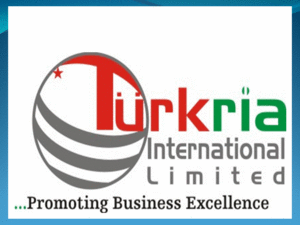Most businesses in Nigeria are designated non-financial institutions and will have to register with the Special Control Unit Against Money Laundering.
Companies and groups such as law firms and private businesses, who carry out banking transactions, have been given till February 1 to register with the Federal Ministry of Trade and Investment or risk stiff penalties for violating the provisions of the revised money laundering law.
Since last week, bank customers have been inundated with text messages from banks reminding all designated non-financial institutions and business enterprises interested in doing business in Nigeria, to register with the Special Control Unit Against Money Laundering, SCUML, of the Ministry of Trade to enable them transact their businesses.
The registration is part of additional know-your-customers, KYC, policy by banks in line with the operational guidelines and directives by the Central bank of Nigeria, CBN, towards the implementation of the Money Laundering (Prohibition) Act 2004.
Apart from the requirement by the Act that corporate bank customers must inform the Economic and Financial Crimes Commission, EFCC, about transactions involving amount up to N10 million and above, the new guidelines makes it mandatory for all such institutions and professional groups to register with the SCUML.
Those affected by the law include dealers in jewelry, cars and luxury goods; chartered/professional accountants, audit firms, tax consultants, clearing and settlement companies, legal practitioners, notaries, supermarkets, hotels, or such other business as the Federal Ministry of Commerce may from time to time designate.
Others include dealers in precious metal and stones, jewelry, trust and company service providers, estate agents, casinos, pool betting and lottery, non-governmental organizations, NGOs and company service providers.
Under the guidelines of the law, no designated non-financial institution shall make or accept cash payments in the sum exceeding N500,000 or its equivalent, in the case of an individual, or N2 million or its equivalent in the case of a body corporate, except in a transaction through a financial institution.
All registered designated non-financial institutions issued with certificate of registration are expected to conduct their businesses in compliance with the customer due diligence, CDD, requirements in line with the provisions of the Money Laundering (Prohibition), Act (MLPA), 2004.
This stipulates that all certified non-financial institutions must verify its client’s identity and identification of address before establishing any other business relationship or transaction.
Prior to any transaction with any casual client involving a sum exceeding $5,000 or its equivalent, the identity of the customer must be established by demanding him to fill the Federal Ministry of Commerce register and ensuring that he/she presents his/her international passport, driver’s license, national identity card or such other document bearing his/her photograph.
Refusing to comply with these requirements or failure to report an international transfer of funds or securities constitutes an offence punishable under section 5(6) of Money Laundering (Prohibition) Act, 2004 with an imprisonment term of not less than two years or more than three years.
Individual offenders are to pay a fine of not less than N250, 000, or more than N1 million or a term of imprisonment of not less than two years or more than three years, or both fine and imprisonment.
Operators of bureau de change, casino, lending establishment, financial or designated non-financial institution or any other body corporate that is found guilty of an offence may be banned indefinitely for a period of five years.




















